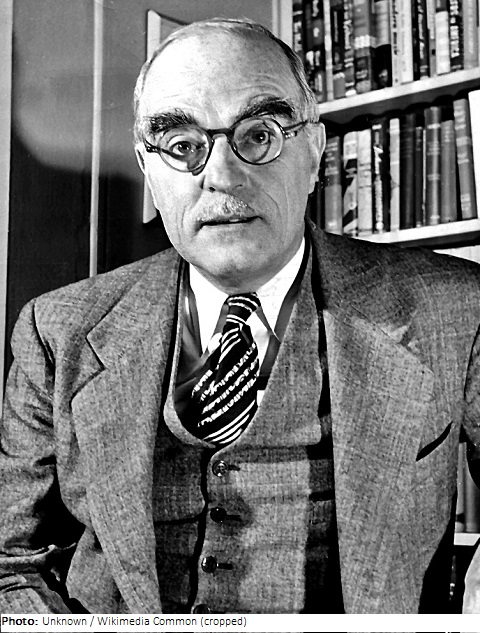
| Roles | Referee |
|---|---|
| Sex | Male |
| Full name | Thornton Niven•Wilder |
| Used name | Thornton•Wilder |
| Born | 17 April 1897 in Madison, Wisconsin (USA) |
| Died | 7 December 1975 (aged 78 years 7 months 20 days) in Hamden, Connecticut (USA) |
| NOC |  United States United States |
Thornton Wilder spent part of his childhood in China as the son of the American consul general to Hong Kong and later Shanghai. He already began writing plays as a young man when he was a student at the prestigious Thacher School in Ojai, California. From 1915-17, he studied modern languages at Oberlin College in Ohio and then went to Yale University in 1918.
Wilder volunteered for military service during World War I and served eight months with a U.S. Coast Guard artillery unit. At Yale, he earned a Bachelor of Arts degree in 1920 and published his first drama in the university magazine. He then attended the American Academy in Rome and worked as a French teacher in Lawrenceville, New Jersey.
In 1925, Wilder received a Master of Arts degree in French from Princeton University. He became commercially successful and widely known in 1927 with the novel The Bridge of San Luis Rey, which also won him his first Pulitzer Prize in 1928 and was made into a film several times. In his novels, he dealt with metaphysical and philosophical questions. In 1928, he was elected to the American Academy of Arts and Letters. In the 1930s, he taught comparative literature at the University of Chicago.
Wilder received his second Pulitzer Prize in 1938 for the full-length play Our Town, a play still popular today. It is an example of his experimental technique employing a narrator, who assumes the role of the ancient chorus and attempts to underscore the universality of human experience breaking through the stage illusion.
A third Pulitzer Prize was awarded to Wilder for his play The Skin of Our Teeth. It echoes the themes echo of many of his other works: war, pestilence, economic depression, and fire as existential human experiences. One year later, he wrote the screenplay for Alfred Hitchcock’s psychological thriller Shadow of a Doubt.
During World War II, Wilder again volunteered for military service, serving on an American air staff in Africa and Italy between 1942 and 1945. Eventually, he was promoted to lieutenant colonel in the U.S. Army Air Forces Intelligence. He was a professor of poetry at Harvard University from 1950-51 and headed the American delegation to the 1952 UNESCO conference in Venice.
In total, Wilder wrote seven short stories, three major plays, numerous one-act plays, and several smaller works such as essays, “three-minute plays”, and articles. In 1968, he won the National Book Award for his novel The Eighth Day. In Germany, he received the Peace Prize of the German Book Trade in 1957 and, in 1959, the Goethe Plaque of the city of Frankfurt am Main, in Austria the Medal of Honor for Science and Art, also in 1959. Wilder was never married and was probably a latent homosexual. He died of heart failure in this house at age 78.
| Games | Sport (Discipline) / Event | NOC / Team | Phase | Unit | Role | As | |
|---|---|---|---|---|---|---|---|
| 1932 Summer Olympics | Art Competitions |  USA USA |
Thornton Wilder | ||||
| Literature, Open (Olympic) | Final Standings | Judge |